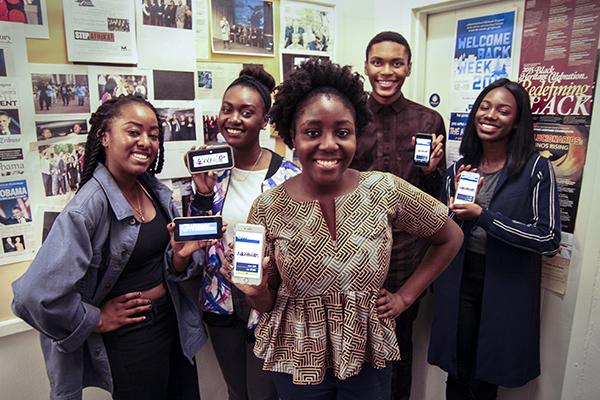Over the next three weeks, five student groups selected by a special committee will fundraise for projects through GW’s first-ever crowdfunding website.
The groups are fundraising for projects like an underwater robot, a showcase to honor ancient African empires and a summer camp for local children. Officials said GW received “many” proposals in October, when the University announced it would launch a platform to help students raise money for specific projects. Five were selected for a month-long fundraising campaign.
The groups, which officials said were chosen for the strength of their concepts and content, have goals ranging from $2,500 to $8,000 and will be listed on the Colonial Crowdfunding website until Dec. 3.
University spokesman Kurtis Hiatt declined to say how many projects applied for the crowdfunding program this fall.
Assistant Director of Student Involvement Anne Graham said students are responsible for marketing their projects to potential donors and the website is also featured on “various University webpages.”
“The Development and Alumni Relations and Division of Student Affairs teams are helping to promote students’ projects and feature them in communications to prospective donors and on various university webpages,” she said.
Senior Executive director of Digital Strategy and Engagement Matt Lindsay said GW hopes to open applications for the spring semester in January.
“We plan to accept new projects and crowdfund two times per year, once in the fall and once in the spring, and we will select a handful of projects each semester. After this semester, we will discuss any adjustments we believe should be made to the application and selection processes,” he said.
Simon Lazev, a co-founder of the Robotics Team and a freshman, which hopes to raise $8,000 to build a robotic submarine for a NASA-sponsored underwater robotics competition in Houston, said money raised through the University platform will go toward supplies, transportation to Houston and to cover the costs of other preliminary competitions.
Lazev said the group’s two dozen members have used social media to alert friends and family of the chance to finance their robotic submarine, which he said will take two to three months to construct.
Lazev, along with brothers Josh and Jeremy Waldron, started the team this year to boost the reputation of the School of Engineering and Applied Sciences. Jeremy Waldron, a freshman, said the crowdfunding model has been useful because the team is still growing and hasn’t had a chance to apply for Student Association funding.
“Every big-name engineering school has a pretty serious robotics program and that’s one way to really acquire some prestige for the University,” Jeremy Waldron said. “We definitely have the intelligence and the drive. We just need the money,” he said.
The men’s club volleyball team also aims to use the money earned from the new platform to bring prestige to GW by bringing home a win from the collegiate club championship in Louisville, Ky.
The team’s president Andrew Nelson said team members often have to pay out of pocket for travel and hotel accommodations, but said funds raised will help cover those expenses, plus the $1,800 fee to bring both their 11-member “A” and “B” teams to the competition.
Nelson, who is a junior, said the tournament is “the culmination of all the hard work we’ve put in all year.”
Camp Kesem, a summer camp for local children whose parents have been diagnosed with cancer, is using Colonial Crowdfunding to raise $5,000 to give the children a yearlong support program outside of the summer camp. With a goal of $2,500, GW Program Board hopes to finance its trip to the convention of the National Association for Campus Activities, also in Louisville, Ky., in February.
The African Students Association hopes to bring in $7,000 for its 10th “Taste of Africa” event, which members say is a landmark event for the University. President Tife Adetunji, a senior, said the group will use the money raised to “up the ante” for the festival in March.
She hopes to hold the event in the Smith Center rather than the usual Marvin Center location so more people can attend. Adetunji said the organization has to “scale down” the event every year because the group lacks funding, and she said she was excited and thankful to have been selected for crowdfunding.
“You cannot understand how important the donation is for us. Without the donation, we can’t make Taste of Africa what we want it to be,” Adetunji said. “You’re helping to make the African community on this campus more visible, helping to make our voices heard, our faces seen on this campus.”







